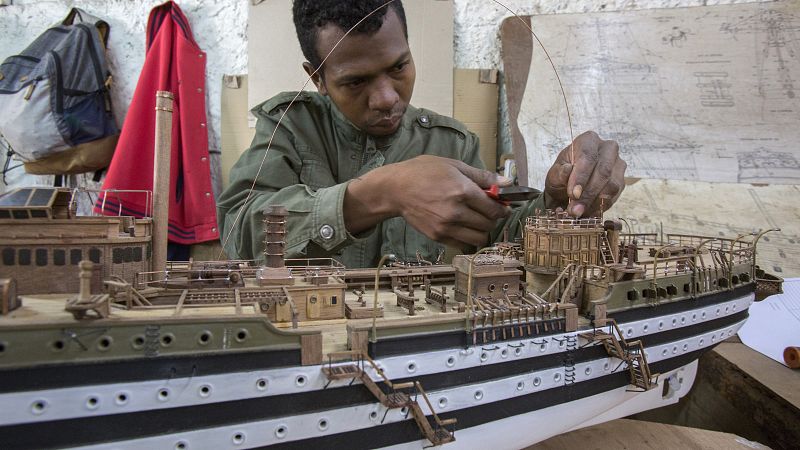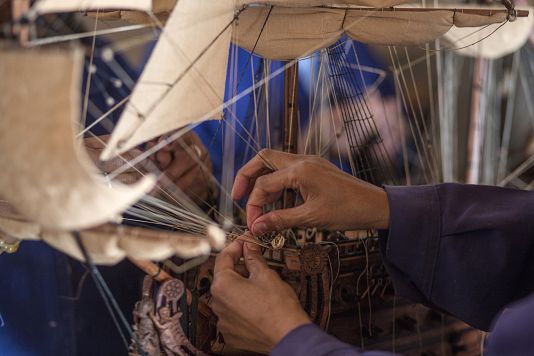Madagascar's model ship builders make country's crafstmanship shine

A model boat-building team in Madagascar's capital makes the country's crafts industry shine.
The island of Madagascar is not renowed for its shipbuilding tradition, but things changed when a workshop known as 'The Village' was launched in 1993.
Since then, it has hand-crafted ships for the King of Spain and even the Pope.
The Village will even have two of its ships being exhibited at the upcoming Homo Faber biennial fair in Venice on 30 September 2024.
Homo Faber is an international celebration of the world's best craftsmanship.
Gregory Postel says: “Investing in people, pushing them to go above and beyond to make tailor-made models, and at the end, someone specialized in luxury craftsmanship, the best in the world, tells us “we can’t make do without you, you have to come”, for me it’s a success. It’s a first step, but it’s such a fabulous success.”
Postel is a model enthusiast and French investor. He became a co-owner of The Village last year.
Stimulating the economy
His goal is to make Madagascar an international jewel of craftsmanship - it is one of the poorest countries in the world, so this type of investment and prestige is important for growing the local economy.
32 craftspeople are employed at this miniature shipbuilding yard in Antananarivo.
Some of them have been there since the foundation of the company and were trained by the founder. In turn the more experienced veterans have trained the newer recruits because there is no formal craftsmanship school in Madagascar.
Romy Henintsoa is an assistant manager at “The Village” and she explains all the steps necessary for the models' construction.
“It starts with the wood cutting, then the production of the deck, the production of the pieces, there are three types : the sculpted, hand-made and turned pieces, then it’s the deck fittings, then it’s the finishing stage with the sail workshop," she says.
Each model takes between a month and ten months to produce - depending on the size and level of detail.
The Village obtains plans from museums, shipping associations or marine architects to reproduce accurate miniature versions.
It mostly makes boats from the age of sail because information about modern battleships is highly-sensitive and not shared by the various navies.
The boats are sanded, sewn, painted and varnished before being prepared for shipping (albeit not by their own sails).
The price of the models starts at 150 euros but can reach upwards of 10,000 euros for the larger pieces.
All the raw materials come from Madagascar, like Anakaraka wood, and the sails are made from Malagasy cotton dipped in tea for colour and the iron and copper are made from recycled materials.
Like many companies relying on tourism, The Village suffered during the COVID-19 pandemic.
Pre-pandemic, The Village says it used to sell around 300 ships a year but now they hope to sell between 80 to 100 pieces in 2024.


